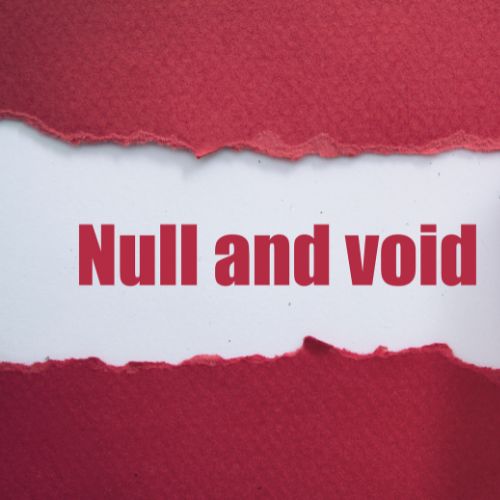When a couple undergo a marriage ceremony, the presumption arises that the marriage is a lawful one; the law of nullity establishes when in fact this is not the case.
There are 2 differing aspects regarding the law of nullity; the first is establishing whether a marriage is void and the second is establishing whether a marriage is voidable. The relevant legislation governing whether a marriage falls in to one of the above categories is the Matrimonial Causes (NI) Order 1978.
To establish that a marriage is void, one of the following grounds must be proved:
- that the parties are within prohibited degrees of relationship
- that one of the parties to the marriage was under the age of 16
- that the marriage is not valid by reason of non compliance with any statutory provision or rule of law governing the formation of the marriage
- that at the time of the marriage, one of the parties was already lawfully married
- that the parties are not respectively male and female
- that – in the case of a polygamous marriage entered into outside Northern Ireland that either party was at the time of the marriage domiciled in Northern Ireland.
A void marriage is one which is so flawed that it may be regarded as never having taken place, however a decree can be obtained to legally verify that fact.
A voidable marriage is one which exists until such a time as the court grants a decree to annul it, which distinguishes it from a void marriage.
The grounds upon which a marriage can be voidable are as follows:
- that the marriage has not been consummated owing to the incapacity of either party
- that the marriage has not been consummated owing to wilful refusal of the Respondent to do so
- that either party to the marriage did not validly consent to it, whether by duress, mistake, unsoundness of mind, or otherwise
- that at the time of the marriage either party was suffering from a mental health disorder of such kind so as to be unfit for marriage
- that at the time of the marriage the Respondent was suffering from a communicable venereal disease
- that at the time of the marriage the Respondent was pregnant by some person other than the Petitioner
- that an interim gender recognition certificate under the Gender Recognition Act 2004 has, after the time of the marriage, been issued to either party to the marriage
- that the Respondent is a person whose gender at the time of the marriage had become the acquired gender under the Gender Recognition Act 2004.
There are certain bars to obtaining a decree of nullity on the ground that a marriage is voidable, such as, that the Petitioner, with knowledge that it was open to him or her to have the marriage avoided, conducted him or herself to lead the Respondent to reasonably believe that he or she would not seek to do so. Further such a decree can be refused on the grounds that it would be unjust to the Respondent to grant it. Additionally, there is a time bar to obtaining a decree of nullity, insofar as proceedings must be issued within 3 years of the date of the marriage, or alternatively the leave of the court must be granted to apply outside that time period. Such leave will only be granted in certain limited circumstances.
Should you require any advice, assistance or more information in respect of any of the issues raised in this article, please contact our specialist lawyers on [email protected].

